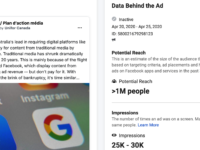Canada’s privacy sector privacy law was born in the late 1990s at a time when e-commerce was largely a curiosity and companies such as Facebook did not exist. For years, the privacy community has argued that Canada’s law was no longer fit for purpose and that a major overhaul was needed. The pace of reform has been frustrating slow, but today Innovation, Science and Industry Minister Navdeep Bains introduced the Consumer Privacy Protection Act (technically Bill C-11, the Digital Charter Implementation Act), which represents a dramatic change in how Canada will enforce privacy law. The bill repeals the privacy provisions of the current Personal Information Protection and Electronic Documents Act (PIPEDA) and will require considerable study to fully understand the implications of the new rules.
This post covers six of the biggest issues in the bill: the new privacy law structure, stronger enforcement, new privacy rights on data portability, de-identification, and algorithmic transparency, standards of consent, bringing back PIPEDA privacy requirements, and codes of practice. These represent significant reforms that attempt to modernize Canadian law, though some issues addressed elsewhere such as the right to be forgotten are left for another day. Given the changes – particularly on new enforcement and rights – there will undoubtedly be considerable lobbying on the bill with efforts to water down some of the provisions. Moreover, some of the new rules require accompanying regulations, which, if the battle over anti-spam laws are a model, could take years to finalize after lengthy consultations and (more) lobbying.











